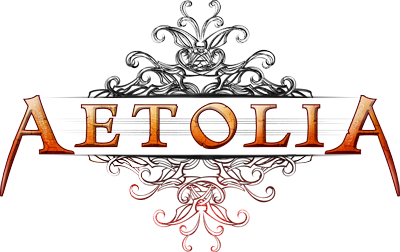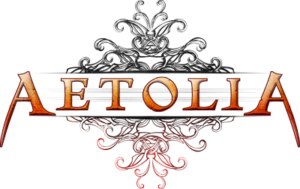4.14.3 Your Character's Role
Questions asked in this file:
- What is a role?
- What things make a role? What things do not?
- What is the importance of a description, and what makes a good
description?
- What is the importance of background, and what makes a good
background?
Q: What is a role?
- In a story there are characters. In the story of Aetolia, your
character is played by you, and this is called a role. While roles
on stage are usually scripted, in Aetolia all roles are improvised.
You decide what happens as you go along, playing your character in
real-time.
- A role is a vision of a personality, an awareness of context, and/or
a set of rules that guides players as they attempt to consistently
and realistically react to fantasy situations.
- A role is an assumed personality, something taken on by a player
when they become their character in Aetolia. A role may be similar
to yourself or different, but having distinct ideas of what role
your character plays will aide greatly in your roleplaying within
the realm. Are they shy? Are they boisterous? Are they nosy or
bossy? Think distinctly about what type of person your character
will be.
- A role is an assumed life. To take on a role, one must disregard
everything about his own life and take on an entirely new identity.
Q: What things make a role? What things do not?
- All the things that make an identity also make a role; the
character's experience, history, beliefs, goals, likes and dislikes,
and so on. Any of these relating to the player do not make a role. A
player's love life does not make a role. Her religion does not make
a role. They may contribute, but only things specific to her
character make a role.
- When assuming a role, think of yourself as an actor playing a part -
and your character is the part you will play. You need to understand
and think about what type of person they will be to be able to
convey who they are properly to others.
- An actor doesn't break role while they play their part. This is
something to keep in mind at all times, even if no one is looking -
that you are your character, not yourself. To stay in your role,
refrain from referring to things like issues (HELP ISSUES), and from
speaking about out of character things (HELP OOC). Remember, even if
you seem to be alone, speaking aloud can still be heard in a number
of ways.
- Statistics are OOC information that you interpret, as the actor, into
IC information. For example, someone with "3400 HP" might be more
muscular, or healthier, than someone with "1000 HP", but I wouldn't
actually speak about the numbers. Similarly with damage, endurance,
intelligence, level, hours played, et cetera. "I am smarter than him"
is something you might hear in real life, or in a story. "I have 14
int and he has 10" is not IC.
- Your character did not leave their home to set off on a great
journey to become a monk because they wanted to "be a high level."
On the other hand, if you wanted to "perfect your body," "find
oneness with nature," and generally "kick some heads in," then these
are much more feasible reasons. We may also incorporate our goals
into our character by making her extremely competitive, murderous,
patriotic, power-hungry, or protective. By making your OOC desires
part of your character in this way, they become less OOC, give the
character more depth, and give other characters new ways to
interact with yours.
Q: What is the importance of a description, and what makes a good
description?
- Remember to be unique! Not every person in the world is born tall
dark and handsome or buxom and beauteous. A character's description
is what they will generally look like their whole life, so a
moment's reflection is definitely worthwhile. Descriptions also
shouldn't include clothing, which should instead be purchased and
worn.
- Smaller attributes might link to the person's background. The colour
and style of hair (if they have any), their eyes, their skin and
its texture and colour, as well as other more defining attributes
such as scars, crooked bits and marred parts. Think about the role
you comprise for your character and find ways that this may have
manifested in their physical body.
- Always remember - a description is just that! A description. It
should not contain any connotations of emotion that others might
feel when looking at you, or any actions at all. People will react
to how your character looks on their own - you can't dictate it. If
you specify actions, that implies that you are performing them EVERY
TIME a person looks at you. Are you doing it when you sleep? When
you're impaled on a warrior's sword?
- A good description relates what your character looks like, not who
he is - your roleplay is there to tell people who you are. It might
tell people that you have dark features, a large build, or a broad
smile. It does not tell people that you are mysterious, cheeky,
intimidating, or a happy person; it is left up to you to play a
mysterious, cheeky, intimidating, or happy character. Don't let
your description roleplay for you.
- A description's purpose is to display a person/place/thing's
appearance and function to players so they can all have a similar
vision of said person/place/thing. The better and more detailed the
description, the better the imagery is, and the better the RPing
experience is.
Q: What is the importance of background, and what makes a good
background?
- A person's present is generated by his past. A detailed summary of a
person's history serves to explain why he behaves and thinks and
believes the way and things he does. Characters should have
backgrounds for psychological references and proof for his behavior
and beliefs. Think about your character's childhood and teen years
and what would have happened to them to create the role you have
envisioned. A good background is one that lists a character's key
experiences that explain these things while not straying from the
context of the realm. Tragedy is not a requirement.
- It is much easier to develop the type of character you want to play
and then invent a background to suit it than create a background
and have a character that doesn't quite fit who you want to roleplay.
- A character who seeks power because he comes from a powerful
family with high expectations is a more interesting than one who
simply escapes from Slaver's Isle and decides he wants to be a king.
Similarly, that character's journey will be a richer one if his
player makes use of the various stresses and drama from his
background to embellish his choices and reactions.
- As a rule, never write your background unless you are ABSOLUTELY,
100% SURE you know it's correct. It should be proofread several
times until there are no errors, as it cannot be changed once saved.
Take your time. Get to know the geography, the inhabitants, the
mythology, and the tone of the game before you write your background.
See also: RP, GOODRP

